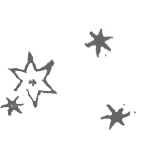Geography
Featured exhibit items for geography.
Exhibit Items
|
A Geographical Map of the Terraqueous Globe Scherer, Heinrich (1700) These are gores for a small geographical "pocket" globe. |
 |
|
| 1 |
On the Christian Expedition to China Ricci, Matteo (1616) This book recounts the establishment of the Jesuit mission in China in the late 1500s led by Matteo Ricci. When Ricci predicted a solar eclipse in 1592 with greater accuracy than the astronomers of the Chinese court, Emperor Wan-li invited Ricci to Beijing. |
 |
| 1 |
The Nuremberg Chronicle Schedel, Hartmann (1493) In the most lavishly illustrated book of the 1400’s, solid spheres ceaselessly turn, carrying the planets and filling the universe between the outermost heaven and the central Earth. |
 |
| 2 |
Cosmography, 1545 Apian, Peter (1545) In this introduction to astronomy and geography, the Moon lies embedded within a solid sphere carrying it around the Earth once a month. The solid sphere explains why the same side of the Moon always faces the Earth. |
 |
| 3 |
Astronomical Calendar, 1518 Stoeffler, Johann (1518) A “calendarium” contains predictions of the positions of the Sun and Moon for several decades into the future. Regiomontanus calculated their positions for 40 years beginning in 1476; Stoeffler for 62 years from 1518-1579 inclusive. |
|
| 4 |
Monuments of China Kircher, Athanasius (1667) Back in Rome, Kircher collected all the information he could gather from Jesuits in China, publishing this massive encyclopedia on China, Tibet, India, Korea and Japan. It contains two notable early maps, numerous portraits, and an introduction to Sanskrit and Chinese characters. |
 |
| 5 |
Universal Geography Ptolemy, Claudius (1545) Although best known for his astronomy, Ptolemy (2nd century) brought the same mathematical methods to bear on various topics, including optics, geography, and astrology. This is the first printed edition of his geography, which established mathematical methods in cartography. |
 |
| 6 |
Cosmography, 1574 Munster, Sebastian (1574) Munster’s Cosmography was one of the most popular books of the 16th century. In addition to the map of the world, it includes separate maps for America, Africa, Asia and Europe. First published in 1540, at least 24 editions were published in the following century. |
|
| 9 |
The Kingdom of China, before now called Cathay and Mangin Cantelli, Giacomo (1682) This map, based on Cantelli’s own reports as well as the surveys of Martini, influenced the larger Coronelli map also on display. Cantelli depicts relief and features like the Great Wall pictorially. Peking is clearly indicated. Korea is a peninsula, per Martini. |
 |
| 10 |
The Western and Eastern Parts of China divided into their Provinces Coronelli, Vincenzo (1696) European techniques of map-making, coupled with Chinese skill and knowledge, led to this two-sheet map by Coronelli. It clearly indicates the Great Wall, Beijing (Xuntien), Korea, and Taiwan. The westernmost part of Japan is also visible. |
 |





